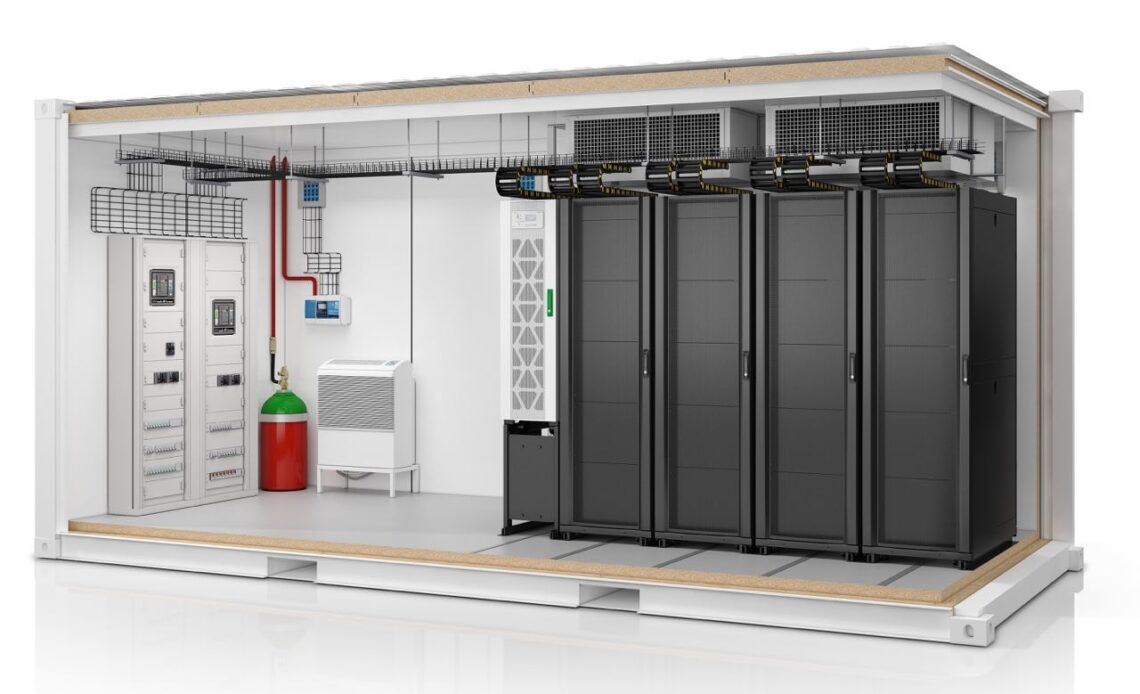
Above: Schneider’s v14kW Easy 4 rack overhead fan 400V Modular system. Image courtesy Schneider Electric.
Digitizing the classroom became the focus as the COVID-19 pandemic forced that overnight shift. While remote learning is still in effect, this may put pressure on networks and server at many schools. The challenge now is to provide an educational IT infrastructure that can support the digital classroom seamlessly as students return to in-person learning.
To address these challenges, some schools across the globe are turning to modular prefabricated data centers. “They are becoming an attractive and widespread option for those looking to consolidate their distributed computing resources in an efficient, secure, resistant and flexible facility designed to provide uninterrupted services, even if school buildings close or lose power,” said Hector Martinez, of Schneider Electric.
With an all-in-one modular data center, the pre-built data center installs along with everything that goes with it – power, cooling, fire suppression system, emergency generator, UPS, and server racks – out of the box.
Space
Some school buildings may not have the physical space necessary to meet the growing digital needs of today’s students. School districts looking to modernize, expand, and make their digital infrastructure disaster-proof are faced with the choice of finding space within existing buildings or undertaking a new construction project.
Future growth
The modular approach enables schools and universities to design a data center with enough compute and storage capacity to handle today’s workloads and have additional capacity for growth. One of the advantages of the modular approach is that if digital needs increase dramatically in the future, another module can be added easily and quickly.
Centralized approach
Many centers have computing and storage resources hidden in network lockers in individual school buildings. This creates problems in terms of efficiency, connectivity, management, and the ability to provide a consistent and reliable user experience. A modular data center creates a consistent and resilient IT infrastructure that is based on next-generation data center design concepts. The modular data center also provides edge computing for cloud-based applications as part of a hybrid IT environment.

